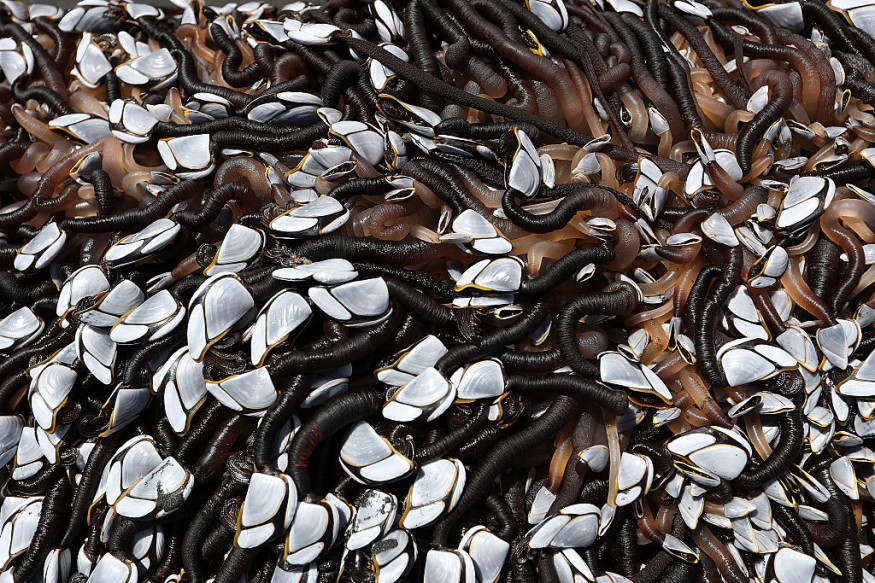British beachgoers were shocked to see a creepy sea creature washed up on the shore that looked like Demogorgons from the hit Netflix series Stranger Things. Stunned spectators found it on Bennar beach near Dyffryn Ardudwy in Gwynedd during a high tide and described it as a "starfish playing the maracas," which was nothing like they had seen before.
One of them pointed out that the bizarre-looking sea creature is something that is straight out of a nightmare. Others have also compared it with another Stranger Things creature called Shadow Monster, also known as mind Flayer, which is a giant spider-like beast.

Strange-Looking Sea Creature Washed Up on the Shore Identified
Regular beachgoers Shell Longmore discovered the strange-looking sea creature washed up on Bennar beach. She shared a photo of it on Facebook to ask other people on the internet suggestions what it could be.
She told North Wales Live that it was a massive shock for her as she had not seen anything like it before despite being a regular to the beach and seeing lots of local wildlife. Nonetheless, she found the strange sea creature very beautiful.
The sea creature looks like an octopus that has shell-like claws at the end of its arms. People commented on Shell's post and identified it as gooseneck barnacles. It was regarded as "impossibly ugly" and is a rare delicacy called percebes in Spain and Portugal due to its sweet and salty-tasting flesh.
One Facebook user told Shell to take advantage of it by selling or eating them because aside from they are lovely, they are also expensive. In some parts of the world, gooseneck barnacles are called Stalked Barnacles and have a strange place in Christianity.
Michael Allaby wrote in his book Animals: From Mythology to Zoology that these sea creatures were eaten on days when meat was forbidden to eat because they are neither flesh nor born of flesh.
He also touched on the history of its name, which arose from the time when bird migration was still unknown to humans. A long time ago, a small black and white goose would visit the coastal regions of Ireland and Western Scotland in winter and migrate to the north to breed in the Arctic. But people would always see those barnacles after the geese left, and so named them after the migratory birds.
ALSO READ : Bizarre, Transparent Sea Creature Reeled by Fishermen Turns to Be 2 Different Animals and 1 Is a Parasite
Expensive Price of Gooseneck Barnacles
Most people may not know that gooseneck barnacles are a type of seafood that comes at a luxurious price. According to Daily Star, export prices could go up to $366 (£300) per kilo. It usually takes an expert to harvest them from underwater rocks and crevices on Spain's Costa da Morte (translated as Coast of Death).
That means it is not easy to harvest them like most seafood. Its price reflects the dangers involved in gathering percebes as a gooseneck barnacle fishermen risk their lives diving in crashing waves. In terms of taste, it resembles a cross between lobster and a clam with a texture similar to Octopus.
Connoisseurs regard gooseneck barnacles as a delicacy that the price is worth the risk. People steam the barnacles and dip them in bowls of hot, melted butter to eat.
RELATED ARTICLE: Bizarre Dragon-Like Fish Pulled From the Depths of the Norwegian Sea Identified
Check out more news and information on Seafood in Science Times.












